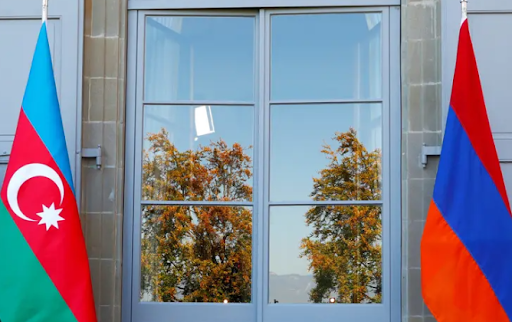
From war…to a nomination for the Nobel Peace Prize?
How Armenia and Azerbaijan can ensure peaceful coexistence
28 December 2023
Within the framework of this agreement, the Azerbaijani side released 32 Armenian servicemen, and the Armenian side released 2 Azerbaijani servicemen. In addition, Armenia withdrew its candidacy for the 29th Conference of the Parties to the UN Framework Convention on Climate Change (COP29) and supported Azerbaijan's candidacy, and Azerbaijan supported Armenia's candidacy for the COP Bureau from the Eastern European Group.
These steps undoubtedly serve to create a positive basis for the signing of a peace agreement. However, the mere steps of leaders, or even the fact of signing a peace agreement, are not enough to establish mutual trust and build relations between the two peoples. Over the years, enmity and hatred have affected both societies so deeply that it will not be easy to erase them. For this reason, in order to prepare people for peace and living together after the signing of the peace agreement, it is necessary to implement consistent measures involving different segments of the population. Of course, for this to happen, the existence of political will and mutual understanding on both sides is a basic condition without which the process cannot move forward. As observations show, there is no serious, organized resistance or opposition to peace in the societies of both countries. That is, it would not be wrong to say that there is ground for the realization of measures of mutual trust.
What can be done at the initial stage?
At the official level, the first steps have been taken, and this should be continued. For example, the process will be accelerated if at the political level the sides give up harsh statements that show any signs of territorial claims. Continued mutual accusations and frequent references to "historic lands" may hinder confidence-building.
Governments should show sincere respect for each other's territorial integrity, independence and sovereignty, and should not attempt to interfere in the other side's foreign and security policy choices (unless Armenia's policy is directed against Azerbaijan and vice versa).
Transportation communications should not be extraterritorial, but should be engaged by each state on its own territory according to sovereign law.
The problem of enclaves on the border should be solved first, without waiting for the completion of the delimitation process, which is likely to be lengthy. It could be solved by mutual return of enclaves by the parties or by an exchange of territories in accordance with the interests of both sides.
Each of the countries should also be able to make decisions for peace and confidence building unilaterally. For example, Armenia could amend its Declaration of Independence. A few months ago, Prime Minister Nikol Pashinyan criticized that document. In the introductory part of the declaration there is the following sentence:
"...on the basis of the joint decision of the Supreme Soviet of the Armenian SSR and the National Council of Nagorno-Karabakh of December 1, 1989 "On the Unification of the Armenian SSR and Nagorno-Karabakh"..."
This paragraph is, in fact, an obstacle to signing a peace treaty and establishing comprehensive relations with Azerbaijan. There should be no proposals containing territorial claims in the document. The mentioned decision of the Supreme Council of Armenia of 1989 should be declared null and void.
In the near future it is also possible and necessary to organize mutual visits of different social groups of the two countries with the help of the states. For example:
- Conditions can be created for Azerbaijani journalists to travel to Armenia and Armenian journalists to Azerbaijan in order to interview officials, political figures of the countries and prepare reports;
- Mutual visits of representatives of non-governmental organizations, meetings with their colleagues, officials and opposition politicians (in Baku and Yerevan) could be organized;
- The signing by the leaders of Azerbaijan and Armenia of a peace agreement on the border of the two countries and joint peace messages may become an indicator of mature political behavior and an example for the whole world. In this case, there is even a possibility that the leaders who put an end to the 35-year conflict could be nominated for the Nobel Peace Prize.
The next stage
For many years, both in Armenia and Azerbaijan, propaganda has been conducted, hatred towards the other side has been incited, it has been reflected in textbooks, hatred has been passed on from generation to generation. Of course, in accordance with their academic freedoms, historians, ethnographers, other scholars and publicists have the right to write articles and publish books of any content they wish. But states have the ability to prevent generational hate speech and hostility in their education systems. Thus:
- Hate speech should be removed from textbooks;
- Non-governmental organizations and mass media that promote territorial claims and hatred should be deprived of state support;
- After the conclusion of the peace agreement, diplomatic relations should be established within a short period of time, mutual visits of officials of the two countries should be organized, and economic cooperation should be launched;
- The return of Azerbaijanis living in Armenia before the conflict and Armenians living in Azerbaijan should be possible on the basis of their desire and decision (without official coercion). Both states should make a prior commitment to ensure all their rights.
These are only some of the proposals that can serve to build peace and trust between the conflicting sides. But it is essential that such policies be credible. If these steps are not sincere or are taken under pressure from third parties, it will be difficult to achieve positive results. Both sides must understand and accept that peace and cooperation is the only, non-alternative option that fully meets their long-term national interests.












